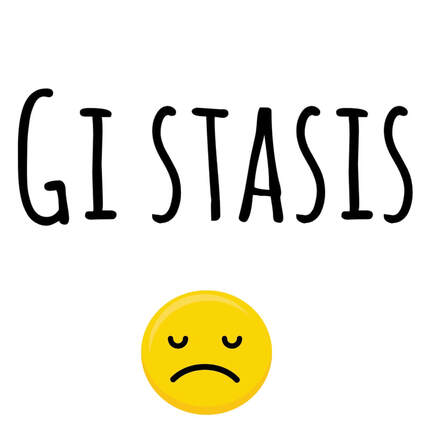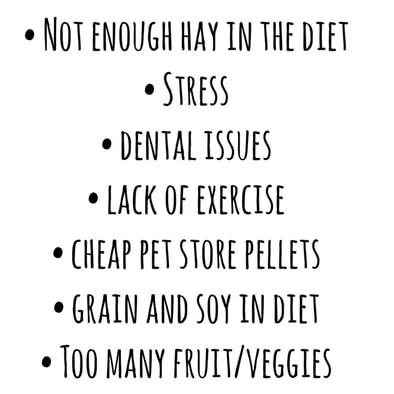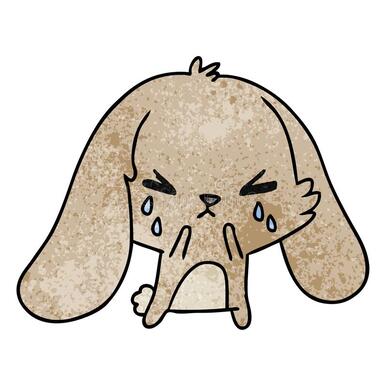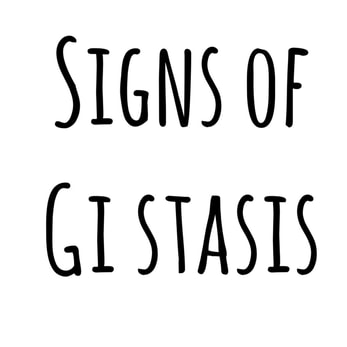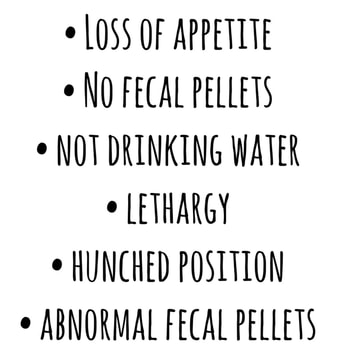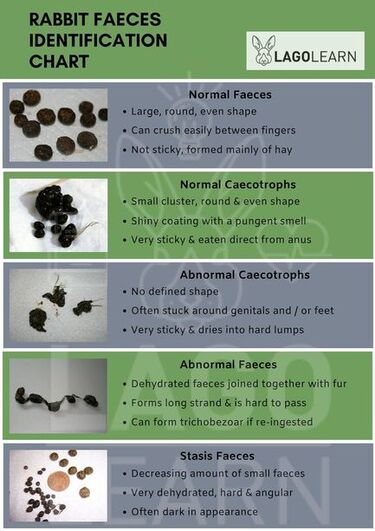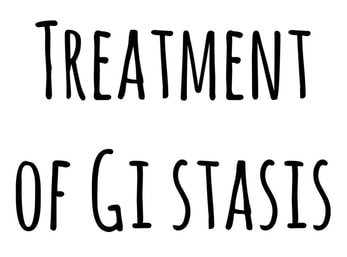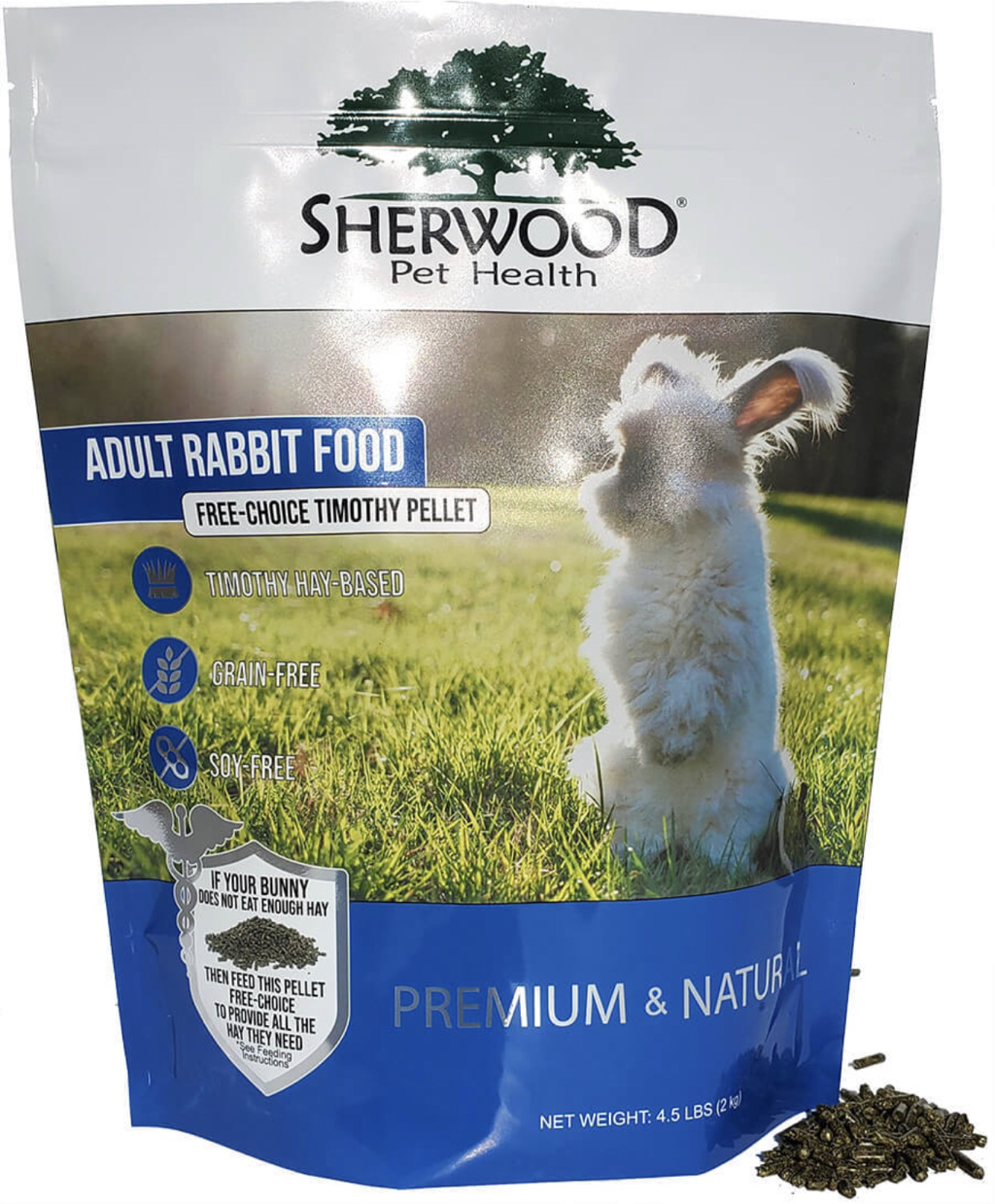GI (or gut) stasis is a potentially deadly condition in which the digestive system slows down or stops completely. Bad bacteria then builds up in the intestines and releases gas into the system, causing very painful bloating and decreases a rabbit's motivation to eat or drink. This makes the problem worse because the rabbit will become dehydrated and starved of essential nutrients and fiber. The contents of the digestive tract will become more compact, and the rabbit will have an even more difficult time passing it through. The bacteria in the gut can also release toxins into the system which overtax the liver and can cause the organ to ultimately fail.
|
Please call your vet right away if you suspect your bunny has GI stasis. When you bring your bunny to the vet, they will try to determine the cause of the gut slowdown. If there is an underlying condition, it is crucial to address it immediately. The vet may want to take some x-rays to assess the blockage and the presence of gas. If your vet has determined that the best course of treatment is to stimulate gut motility they may administer motility drugs, IV fluids, pain medication, antibiotics, probiotics, and infant gas drops. Sherwood makes an excellent product called Appetite Restore to help get your rabbit eating again.
|
|
There are several things you can do to help prevent GI stasis. First, be sure your rabbit is getting a proper, hay-based diet. Give unlimited hay daily. A hay-based diet is essential because it provides the fiber necessary to keep the digestive system moving. The Sherwood pellets I recommend are hay based and are a healthy choice to prevent GI stasis. I also highly recommend giving your bunny the Digestive Support Tablets as treats regularly. Another way to prevent GI Stasis is to bring your rabbit in for regular vet checkups. Your vet may be able to detect underlying health issues that your bunny has such as infections or dental problems. Third, evaluate your rabbit’s living space. Rabbits need plenty of room to exercise in a bunny-proofed or supervised area. They do best when they are included in family life, but they are prone to high stress levels when there are major changes to their environment and routine. Do your best to create a happy, healthy environment for your bunny.
|
